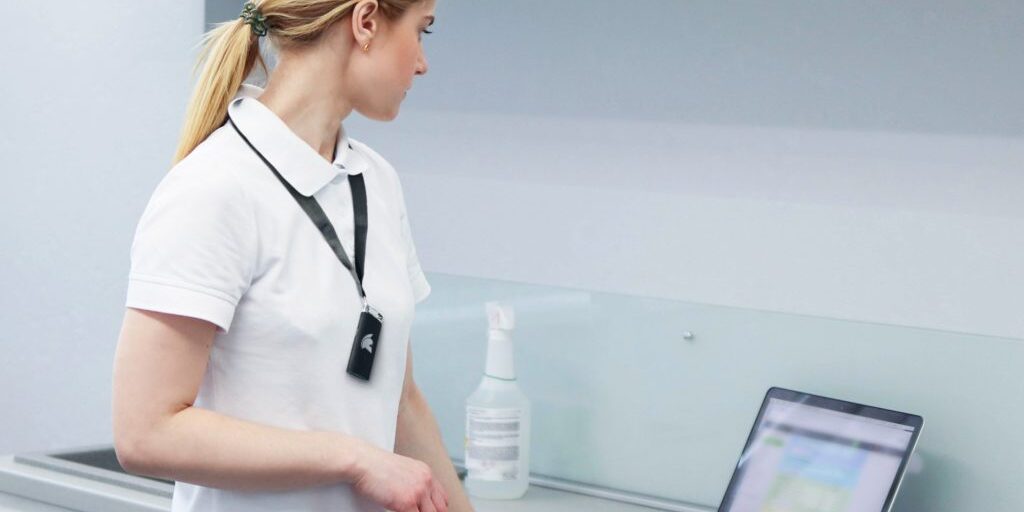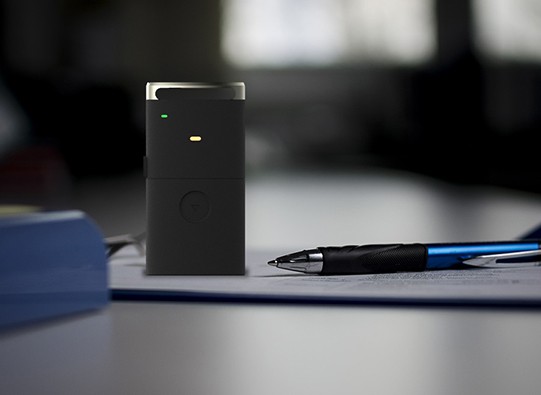
Passwords for Healthcare Providers
Passwords in the healthcare workplace actually cost more to maintain and deal with than other industries. Clinicians need faster and more seamless access to records and PCs. It takes too long to do some tedious login steps, and time is precious.
Simplify HIPAA-related tasks
- Secure Authentication: GateKeeper offers secure authentication that ensures only authorized personnel can access confidential patient information. This helps clinics to maintain HIPAA compliance by preventing unauthorized access to patient records. With GateKeeper, staff can easily log in and out of workstations using a secure token. Therefore, this eliminates the need to remember complex passwords or to log in and out of different applications.
- Automated Session Management: GateKeeper automatically logs out inactive sessions to ensure that patient information is not left open and vulnerable to unauthorized access. This feature eliminates the time-consuming need for staff to manually log out of applications when they step away from their workstations. With GateKeeper, staff can be confident that patient data is always secure and in compliance with HIPAA regulations.
- Audit Trail: GateKeeper provides a detailed audit trail of all access and activity, helping clinics to maintain a comprehensive record of user activity for compliance and reporting purposes. The audit trail captures information such as user activity, login times, and access attempts, providing a detailed history of who accessed what information and when. This helps clinics to meet HIPAA regulations related to documentation.
Improve Uptime using Passwords for Healthcare Providers
Simplified login by using passwords for healthcare providers: GateKeeper’s fast and secure authentication process eliminates the need for staff to remember complex passwords, which can be time-consuming and error-prone. With GateKeeper, staff can quickly and easily log in and out of their workstations using a secure token, saving time and reducing the risk of login errors. This helps to increase uptime in the clinic by minimizing the amount of time staff spend on login-related tasks.
Remote Management: GateKeeper’s cloud-based management console allows administrators to manage workstations from anywhere, at any time. This feature allows administrators to remotely monitor workstations, troubleshoot issues, and make updates or changes as needed, without having to physically access each workstation. This helps to increase uptime in the clinic by reducing the time and effort required for workstation maintenance and management. See other ways to save time such as reducing login times by 80%.
Easier EHR Access
Fast and Secure Authentication: GateKeeper’s fast and secure authentication process eliminates the need for staff to remember complex passwords, which can be time-consuming and error-prone. With GateKeeper, staff can quickly and easily log in and out of their workstations using a secure token, allowing them to access EHRs quickly and efficiently.
Easy Shared PC Access: Reduce mistakes and waiting time to access a workstation or EHR profile. GateKeeper allows admins to set up PCs to login using any shared account. This ensures that each clinicians only accesses what they’re meant to.
Role-Based Access: GateKeeper allows administrators to assign role-based access to EHRs. This ensures that staff only have access to the information they need to perform their job duties. Therefore, this feature helps to ensure that EHRs are accessed securely and that patient information is kept confidential. With GateKeeper, staff can be confident that they are accessing EHRs in compliance with HIPAA regulations.
Helps lower cyber insurance premiums
Passwords for healthcare providers are just the start. Next are the benefits of 2FA, including for insurance. Because 2FA is such an effective security measure, it can help to lower cyber insurance premiums. Insurance companies often use a variety of factors to determine the cost of a cyber insurance policy. This includes the level of security that is in place to protect sensitive data. By implementing 2FA, organizations can demonstrate to insurance companies that they are taking proactive steps to secure their data and reduce the risk of cyber attacks.
In addition to potentially lowering cyber insurance premiums, implementing 2FA can also help organizations to reduce the risk of costly cyber attacks. Cyber attacks can be costly, with organizations facing significant expenses related to data breach remediation. Examples of costs include legal fees, recovery, and reputation damage. By implementing 2FA, organizations can significantly reduce the risk of a successful cyber attack, helping to protect their sensitive data.
Overall, 2FA is an effective security measure that can help organizations to lower their cyber insurance premiums, reduce the risk of cyber attacks, and protect their sensitive data. By implementing 2FA, organizations can demonstrate to insurance companies that they’re taking proactive steps to protect themselves against cyber threats. See what other ways you can help enhance your cyber security.

Finally, see GateKeeper Enterprise advanced MFA in action.
Take a self-guided tour of how you can evolve from passwords. Then you're really saving time with automation.




